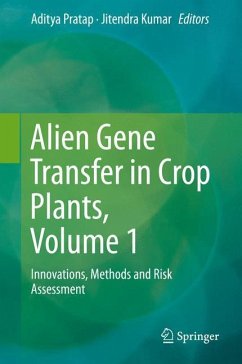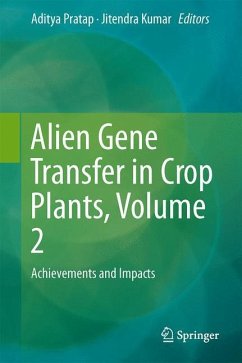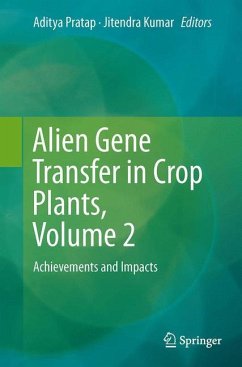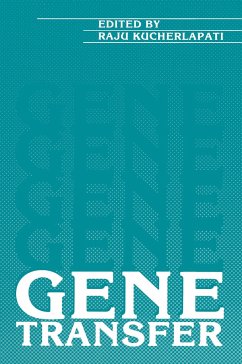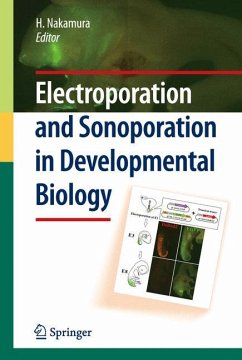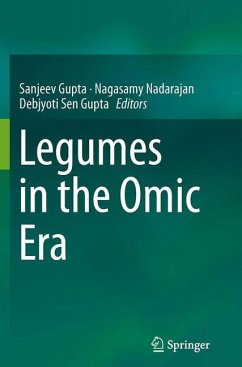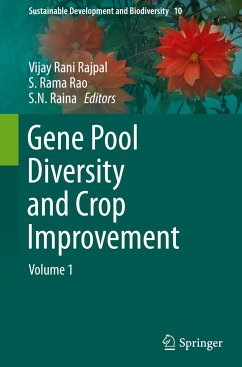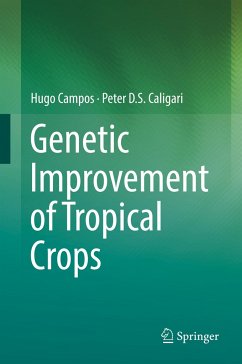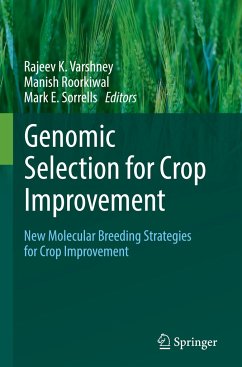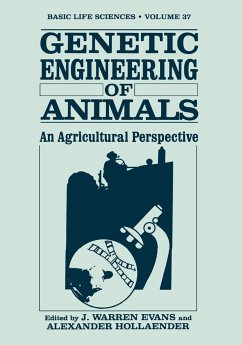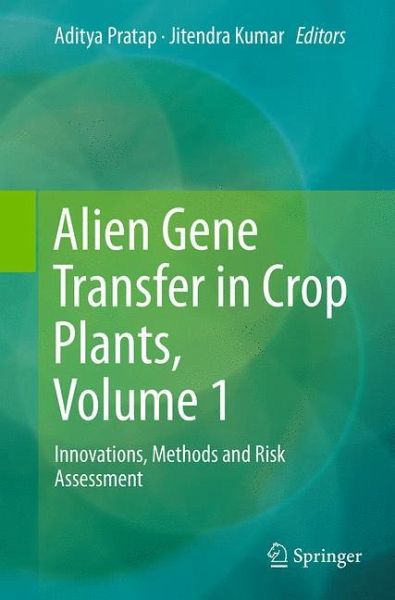
Alien Gene Transfer in Crop Plants, Volume 1
Innovations, Methods and Risk Assessment
Herausgegeben: Pratap, Aditya; Kumar, Jitendra
Versandkostenfrei!
Versandfertig in 6-10 Tagen
113,99 €
inkl. MwSt.

PAYBACK Punkte
57 °P sammeln!
Genetic engineering and biotechnology along with conventional breeding have played an important role in developing superior cultivars by transferring economically important traits from distant, wild and even unrelated species to the cultivated varieties which otherwise could not have been possible with conventional breeding. There is a vast amount of literature pertaining to the genetic improvement of crops over last few decades. However, the wonderful results achieved by crop scientists in food legumes' research and development over the years are scattered in different journals of the World. ...
Genetic engineering and biotechnology along with conventional breeding have played an important role in developing superior cultivars by transferring economically important traits from distant, wild and even unrelated species to the cultivated varieties which otherwise could not have been possible with conventional breeding. There is a vast amount of literature pertaining to the genetic improvement of crops over last few decades. However, the wonderful results achieved by crop scientists in food legumes' research and development over the years are scattered in different journals of the World. The two volumes in the series 'Alien Gene Transfer in Crop Plants' address this issue and offer a comprehensive reference on the developments made in major food crops of the world. These volumes aim at bringing the contributions from globally renowned scientists at one platform in a reader-friendly manner. The 1st volume entitled, 'Alien Gene Transfer in Crop Plants: Innovations, Methods and Risk Assessment" will deal exclusively with the process and methodology. The contents of this volume have been designed to appraise the readers with all the theoretical and practical aspects of wide hybridization and gene transfer like processes and methods of gene transfer, role of biotechnology with special reference to embryo rescue, genetic transformation, protoplast fusion and molecular marker technology, problems such as cross incompatibility and barriers to distant hybridization and solutions to overcome them. Since wild and weedy relatives of crop plants may have negative traits associated with them, there are always possibilities of linkage drag while transferring alien alleles. Therefore, problems and limitations of alien gene transfer from these species will also be discussed in this series. Further, the associated risks with this and assessment of risks will also be given due weightage.





